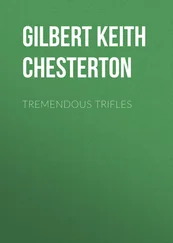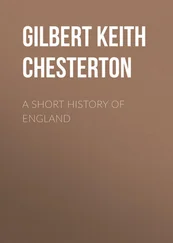Gilbert Chesterton - Manalive
Здесь есть возможность читать онлайн «Gilbert Chesterton - Manalive» весь текст электронной книги совершенно бесплатно (целиком полную версию без сокращений). В некоторых случаях можно слушать аудио, скачать через торрент в формате fb2 и присутствует краткое содержание. Год выпуска: 1912, Издательство: Thomas Nelson and Sons, Жанр: Классическая проза, на английском языке. Описание произведения, (предисловие) а так же отзывы посетителей доступны на портале библиотеки ЛибКат.
- Название:Manalive
- Автор:
- Издательство:Thomas Nelson and Sons
- Жанр:
- Год:1912
- ISBN:нет данных
- Рейтинг книги:3 / 5. Голосов: 1
-
Избранное:Добавить в избранное
- Отзывы:
-
Ваша оценка:
- 60
- 1
- 2
- 3
- 4
- 5
Manalive: краткое содержание, описание и аннотация
Предлагаем к чтению аннотацию, описание, краткое содержание или предисловие (зависит от того, что написал сам автор книги «Manalive»). Если вы не нашли необходимую информацию о книге — напишите в комментариях, мы постараемся отыскать её.
Manalive — читать онлайн бесплатно полную книгу (весь текст) целиком
Ниже представлен текст книги, разбитый по страницам. Система сохранения места последней прочитанной страницы, позволяет с удобством читать онлайн бесплатно книгу «Manalive», без необходимости каждый раз заново искать на чём Вы остановились. Поставьте закладку, и сможете в любой момент перейти на страницу, на которой закончили чтение.
Интервал:
Закладка:
Suddenly Moses Gould banged one big scientific book on top of another, cocked his little legs up against the table, tipped his chair backwards so far as to be in direct danger of falling over, emitted a startling and prolonged whistle like a steam engine, and asserted that it was all his eye.
When asked by Moon what was all his eye, he banged down behind the books again and answered with considerable excitement, throwing his papers about. “All those fairy-tales you’ve been reading out,” he said. “Oh! don’t talk to me! I ain’t littery and that, but I know fairy-tales when I hear ’em. I got a bit stumped in some of the philosophical bits and felt inclined to go out for a B. and S. But we’re living in West ’Ampstead and not in ’Ell; and the long and the short of it is that some things ’appen and some things don’t ’appen. Those are the things that don’t ’appen.”
“I thought,” said Moon gravely, “that we quite clearly explained–”
“Oh yes, old chap, you quite clearly explained,” assented Mr. Gould with extraordinary volubility. “You’d explain an elephant off the doorstep, you would. I ain’t a clever chap like you; but I ain’t a born natural, Michael Moon, and when there’s an elephant on my doorstep I don’t listen to no explanations. ‘It’s got a trunk,’ I says.–‘My trunk,’ you says: ‘I’m fond of travellin’, and a change does me good.’–‘But the blasted thing’s got tusks,’ I says.–‘Don’t look a gift ’orse in the mouth,’ you says, ‘but thank the goodness and the graice that on your birth ’as smiled.’–‘But it’s nearly as big as the ’ouse,’ I says.–‘That’s the bloomin’ perspective,’ you says, ‘and the sacred magic of distance.’–‘Why, the elephant’s trumpetin’ like the Day of Judgement,’ I says.–‘That’s your own conscience a-talking to you, Moses Gould,’ you says in a grive and tender voice. Well, I ’ave got a conscience as much as you. I don’t believe most of the things they tell you in church on Sundays; and I don’t believe these ’ere things any more because you goes on about ’em as if you was in church. I believe an elephant’s a great big ugly dingerous beast– and I believe Smith’s another.”
“Do you mean to say,” asked Inglewood, “that you still doubt the evidence of exculpation we have brought forward?”
“Yes, I do still doubt it,” said Gould warmly. “It’s all a bit too far-fetched, and some of it a bit too far off. ’Ow can we test all those tales? ’Ow can we drop in and buy the ‘Pink’Un’ at the railway station at Kosky Wosky or whatever it was? ’Ow can we go and do a gargle at the saloon-bar on top of the Sierra Mountains? But anybody can go and see Bunting’s boarding-house at Worthing.”
Moon regarded him with an expression of real or assumed surprise.
“Any one,” continued Gould, “can call on Mr. Trip.”
“It is a comforting thought,” replied Michael with restraint; “but why should any one call on Mr. Trip?”
“For just exactly the sime reason,” cried the excited Moses, hammering on the table with both hands, “for just exactly the sime reason that he should communicate with Messrs. ’Anbury and Bootle of Paternoster Row and with Miss Gridley’s ’igh class Academy at ’Endon, and with old Lady Bullingdon who lives at Penge.”
“Again, to go at once to the moral roots of life,” said Michael, “why is it among the duties of man to communicate with old Lady Bullingdon who lives at Penge?”
“It ain’t one of the duties of man,” said Gould, “nor one of his pleasures, either, I can tell you. She takes the crumpet, does Lady Bullingdon at Penge. But it’s one of the duties of a prosecutor pursuin’ the innocent, blameless butterfly career of your friend Smith, and it’s the sime with all the others I mentioned.”
“But why do you bring in these people here?” asked Inglewood.
“Why! Because we’ve got proof enough to sink a steamboat,” roared Moses; “because I’ve got the papers in my very ’and; because your precious Innocent is a blackguard and ’ome smasher, and these are the ’omes he’s smashed. I don’t set up for a ’oly man; but I wouldn’t ’ave all those poor girls on my conscience for something. And I think a chap that’s capable of deserting and perhaps killing ’em all is about capable of cracking a crib or shootin’ an old schoolmaster–so I don’t care much about the other yarns one way or another.”
“I think,” said Dr. Cyrus Pym with a refined cough, “that we are approaching this matter rather irregularly. This is really the fourth charge on the charge sheet, and perhaps I had better put it before you in an ordered and scientific manner.”
Nothing but a faint groan from Michael broke the silence of the darkening room.
Chapter IV
The Wild Weddings; or, the Polygamy Charge
“A modern man,” said Dr. Cyrus Pym, “must, if he be thoughtful, approach the problem of marriage with some caution. Marriage is a stage–doubtless a suitable stage–in the long advance of mankind towards a goal which we cannot as yet conceive; which we are not, perhaps, as yet fitted even to desire. What, gentlemen, is the ethical position of marriage? Have we outlived it?”
“Outlived it?” broke out Moon; “why, nobody’s ever survived it! Look at all the people married since Adam and Eve–and all as dead as mutton.”
“This is no doubt an inter-pellation joc’lar in its character,” said Dr. Pym frigidly. “I cannot tell what may be Mr. Moon’s matured and ethical view of marriage–”
“I can tell,” said Michael savagely, out of the gloom. “Marriage is a duel to the death, which no man of honour should decline.”
“Michael,” said Arthur Inglewood in a low voice, “you MUST keep quiet.”
“Mr. Moon,” said Pym with exquisite good temper, “probably regards the institution in a more antiquated manner. Probably he would make it stringent and uniform. He would treat divorce in some great soul of steel–the divorce of a Julius Caesar or of a Salt Ring Robinson– exactly as he would treat some no-account tramp or labourer who scoots from his wife. Science has views broader and more humane. Just as murder for the scientist is a thirst for absolute destruction, just as theft for the scientist is a hunger for monotonous acquisition, so polygamy for the scientist is an extreme development of the instinct for variety. A man thus afflicted is incapable of constancy. Doubtless there is a physical cause for this flitting from flower to flower– as there is, doubtless, for the intermittent groaning which appears to afflict Mr. Moon at the present moment. Our own world-scorning Winterbottom has even dared to say, ‘For a certain rare and fine physical type polygamy is but the realization of the variety of females, as comradeship is the realization of the variety of males.’ In any case, the type that tends to variety is recognized by all authoritative inquirers. Such a type, if the widower of a negress, does in many ascertained cases espouse en seconde noces an albino; such a type, when freed from the gigantic embraces of a female Patagonian, will often evolve from its own imaginative instinct the consoling figure of an Eskimo. To such a type there can be no doubt that the prisoner belongs. If blind doom and unbearable temptation constitute any slight excuse for a man, there is no doubt that he has these excuses.
“Earlier in the inquiry the defence showed real chivalric ideality in admitting half of our story without further dispute. We should like to acknowledge and imitate so eminently large-hearted a style by conceding also that the story told by Curate Percy about the canoe, the weir, and the young wife seems to be substantially true. Apparently Smith did marry a young woman he had nearly run down in a boat; it only remains to be considered whether it would not have been kinder of him to have murdered her instead of marrying her. In confirmation of this fact I can now con-cede to the defence an unquestionable record of such a marriage.”
Читать дальшеИнтервал:
Закладка:
Похожие книги на «Manalive»
Представляем Вашему вниманию похожие книги на «Manalive» списком для выбора. Мы отобрали схожую по названию и смыслу литературу в надежде предоставить читателям больше вариантов отыскать новые, интересные, ещё непрочитанные произведения.
Обсуждение, отзывы о книге «Manalive» и просто собственные мнения читателей. Оставьте ваши комментарии, напишите, что Вы думаете о произведении, его смысле или главных героях. Укажите что конкретно понравилось, а что нет, и почему Вы так считаете.









